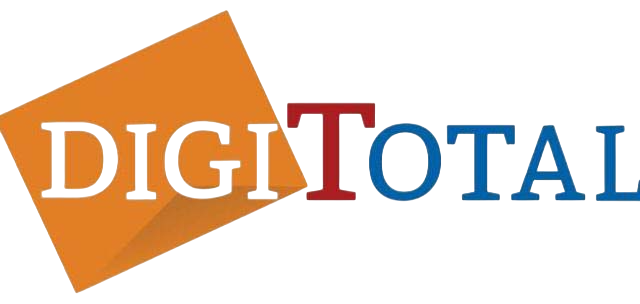If you’ve been optimising your website to increase organic traffic from search engines for a while, you’re likely looking for additional ways to enhance your online presence. A smart next step after having a well-optimised website is to invest in a paid search engine campaign. These campaigns help businesses automate the process of attracting and converting new leads, and paying for premium search engine result placement can also provide valuable data that further sharpens your original SEO strategy.
Curious about how this works? Keep reading to discover how closely integrated SEO and paid search engine marketing campaigns are, and how the data from one can inform the other—boosting the overall effectiveness of your digital marketing strategy and improving your ROI.
The Difference Between Paid Search, PPC Ads, and SEO Strategies
To build a solid foundation for understanding how paid search campaigns (PPC) and SEO can complement each other, let’s briefly explain what each strategy involves and how they benefit your business online.
Digital Marketing Strategies and Tools
Whether you run a physical store or operate solely online, digital marketing helps you find, attract, and convert new leads. From increasing brand awareness to driving sales, there are many marketing platforms and tools available that vary based on your goals, budget, and resources.
Among these, SEO and paid search campaigns are two key strategies marketers rely on to boost online presence. Paid search campaigns allow businesses to secure the top spot on Google search result pages, paying only when a user clicks through—commonly known as PPC campaigns or PPC ads (terms we’ll use interchangeably here). This is crucial because studies show over 75% of users never click past the first page of search results.
Since the top position on page one is highly coveted, some marketers choose to pay for this placement rather than compete organically. We’ll dive into this more below.
SEO (Search Engine Optimisation) involves optimising your online content to rank higher organically on search engine results pages (SERPs). This means increasing your chances of appearing among the top search results naturally. From websites to videos and shopping ads, nearly every aspect of your online marketing can be optimised for better SEO rankings. More on this soon.
Paid Search (PPC Campaigns)
Paid ads give marketers with budgets the chance to increase visibility by targeting relevant users directly. For marketers with a defined audience or those wanting to test which search terms resonate best with customers, investing in PPC ads or premium search placements on Google results can significantly boost your chances of attracting new, highly relevant leads.
SEO Campaigns
SEO covers the full practice of positioning your digital content so that search engines like Google can easily find, understand, and present your website to interested users. Google’s goal is to deliver content that meets users’ needs, solves problems, or helps them discover brands they’ll appreciate. As a result, Google favours websites that clearly communicate their purpose and value—making it easier for the search engine to provide the best user experience with highly relevant content.
While SEO and paid search might seem quite different, there’s considerable overlap. Using both strategies together can provide valuable insights into customer behaviour and preferences. Read on to explore how SEO data can complement your paid search efforts when you’re ready to invest in PPC campaigns.
How SEO Can Benefit Your Website and Brand?
Website Optimisation
For small businesses or marketers new to the digital space, SEO offers a cost-effective way to attract more leads, paying customers, and engaged audiences. In essence, search engine optimisation involves enhancing your online marketing assets—including:
- Websites
- Video Content
- Social Media Profiles
—so they align with search engine algorithms.
Why is this important? Because search engines like Google have established best practices that, when followed, help them better understand your content. By aligning your website with these practices—whether through visuals, on-page content, or technical structure—you increase the chances of being delivered in front of the right users via organic search.
Here are just a few key ways businesses can optimise their digital presence for search engines:
Meta Data
If you’ve ever searched on Google, you’ve seen short descriptions under each result—this is meta data in action. These small text snippets (often drawn from your meta description) tell potential visitors what your website is about and help them decide whether to click through.
Other essential metadata includes:
- Page titles
- Header tags (H1, H2, etc.)
- Meta descriptions
Each of these elements contributes to how clearly your content is understood by both search engines and users.
On-Page SEO
Beyond your headlines, every element on a webpage—including written content, images, and image alt-text—can be optimised. On-page SEO ensures that Google can accurately interpret the content and purpose of your site. A well-structured page helps build trust and relevance in the eyes of search engines, increasing your visibility to potential customers.
Keywords
Perhaps one of the most critical aspects of SEO, keywords are terms and phrases that represent your business—and the ones most likely searched by your target audience. Keywords should be used throughout:
- Meta descriptions
- Website copy
- Image alt-tags
To get started, use keyword research tools to find the most relevant search terms your audience is already using. (We cover keyword research in more detail [here]—stay tuned!) Knowing which phrases to target helps you optimise your content more effectively and ensures you’re reaching the right users at the right time.
How PPC Ads Can Help Position Your Business Online?
If you have the budget, paid search and PPC ads are powerful ways to attract and convert highly relevant traffic online. Here are a few compelling reasons to use PPC:
Top Search Engine Result
Want that prestigious first-page spot? Research shows over 75% of Google users stick to the first page for answers.
Certain businesses—in particular, those with local foot traffic or physical locations—should especially vie for this prime position. These include service-based businesses like salons, law firms, retail stores, and other local providers.
Increased CTR (Click-Through Rate)
Getting noticed is one thing; getting people to click is another. If the top of your funnel depends on getting users to engage with your content, a strong CTR is essential. PPC ads can help you bypass the lengthy organic path and test offers or messaging that drive clicks faster.
Refining Your Marketing Strategy
Like SEO, paid ads give you data—fast. You can experiment with keywords, messaging, offers, and landing pages to see what resonates best with your audience. This kind of rapid testing is harder to do organically in the early stages.
Even if you’re unsure about launching a full-scale campaign, PPC can let you test your assumptions (messaging, landing pages, ROI metrics) in a smaller, more controlled way before investing heavily.
Integrating SEO and Paid Search Campaigns
By now, you probably see the overlap between SEO and PPC. Each has its own strengths:
Strategy | Strengths |
SEO | Generally more cost-effective over time, good for sustainable organic growth and brand awareness. |
Paid Campaigns / PPC Ads | Faster access to top placements, the ability to test messaging quickly, and greater immediate control. |
For businesses already doing SEO, paid search offers a way to leverage SEO insights and validate messaging using real-time user data. In turn, results from your paid campaigns can inform your organic strategy.
In short:
- SEO yields insights into what terms users search for, what content they click on, and how they engage with your site.
- Paid search allows you to test those insights, refine them, and maximise ROI.
Most marketers want to invest in messaging that’s proven to connect with their audience. Using paid campaigns to validate SEO insights ensures your campaigns are data-driven and effective.
Become a PPC Ad Expert with the DigiTotal Team
As one of Australia’s top digital marketing agencies, we’re committed to educating our community with in-depth blogs, case studies, and insights on emerging digital trends.
Through regular content focused on PPC vs SEO, Google Ads strategies, tracking ROI, and advanced tactics, the DigiTotal blog offers practical wisdom for marketers and business owners alike.
Ready to outsource your marketing? If you’re at a point where you’d prefer a team to run your paid campaigns, we’re here. We support businesses of all sizes in scaling their online presence, refining their marketing, and staying top-of-mind with their audience.

